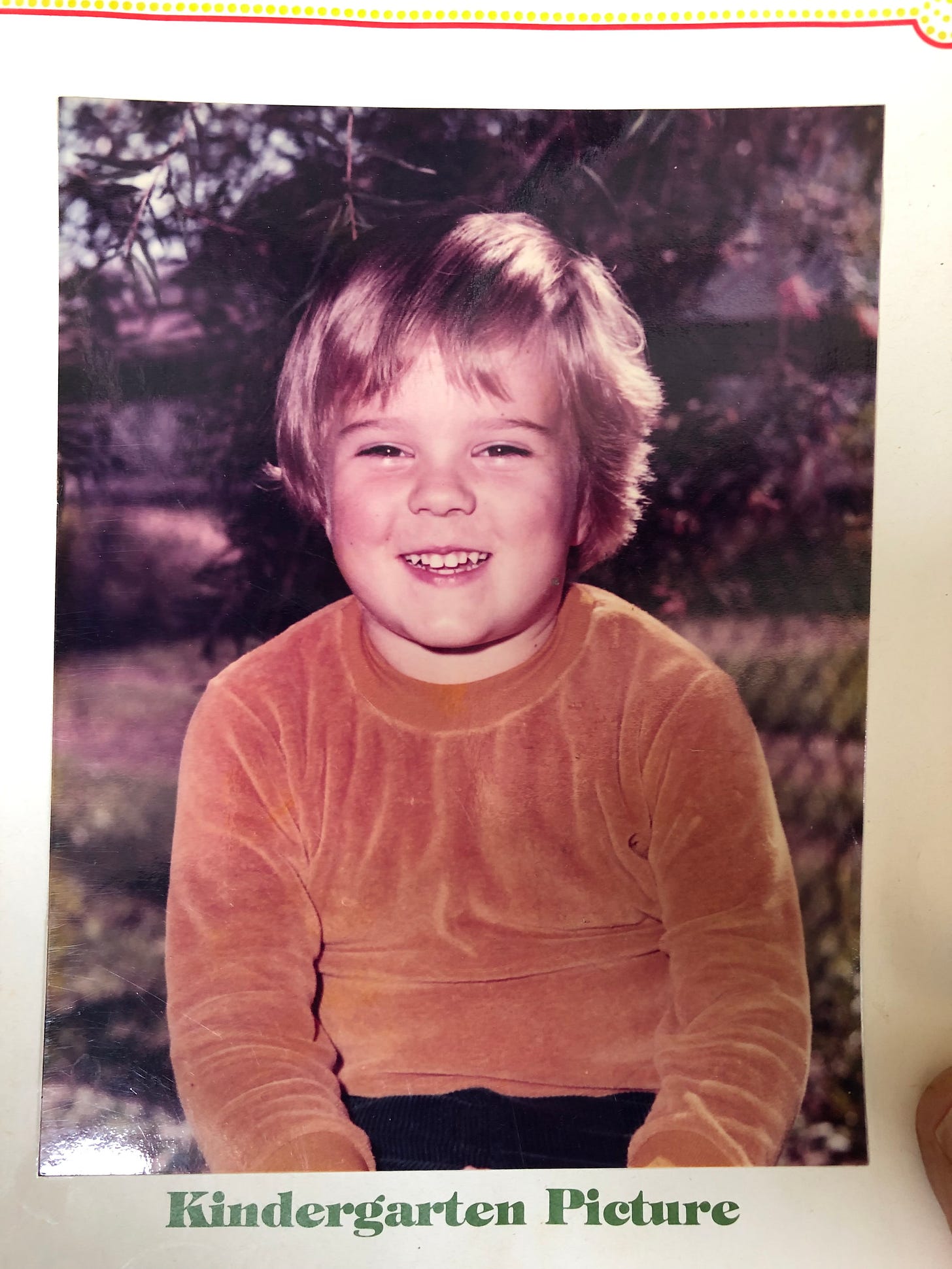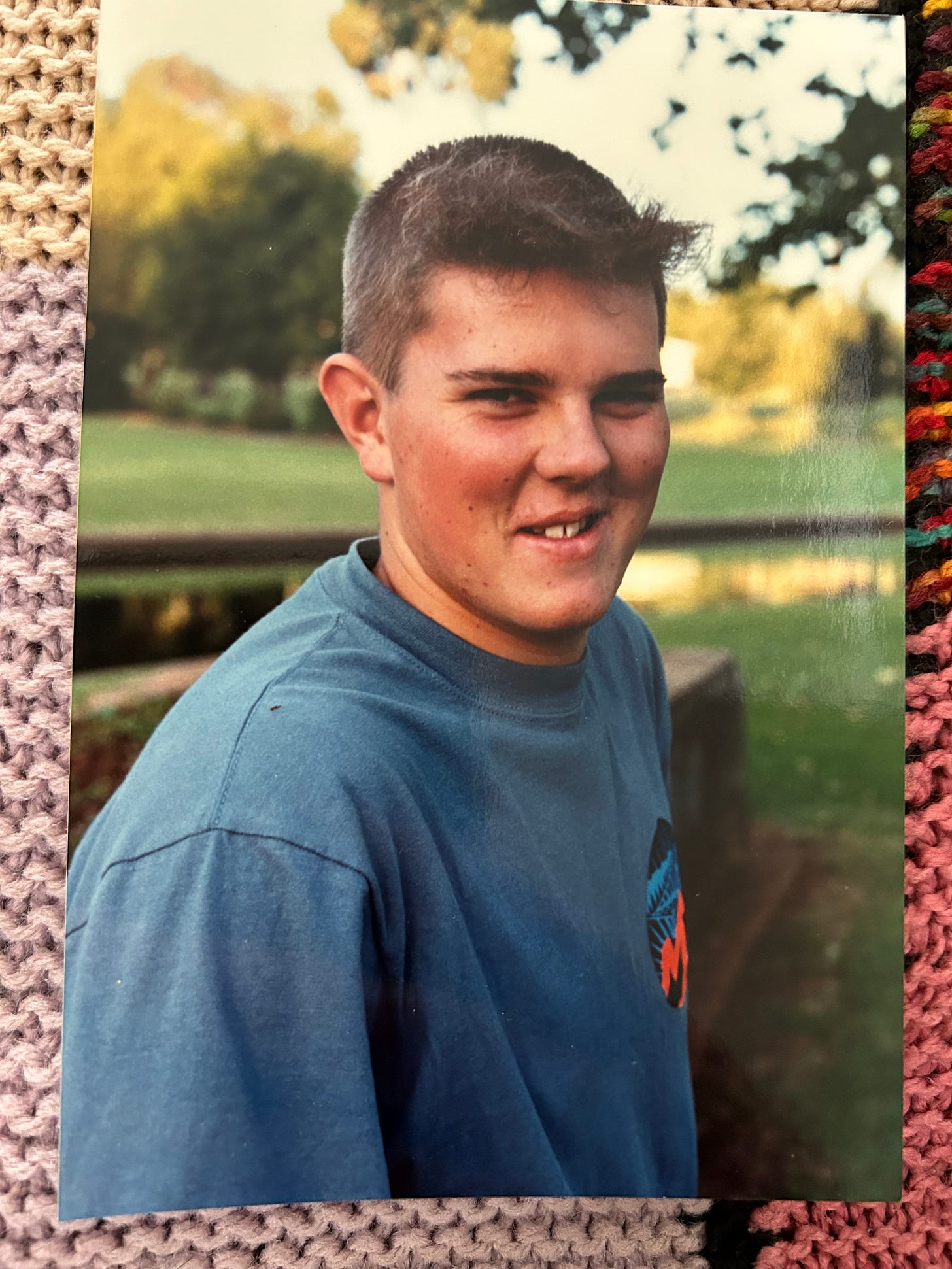My origin story.
In the Marvel Universe every character has an origin story, a tale of how they came to be a superhero. Batman’s story is probably my favourite, and while I might not have much in common the caped crusader (beyond sharing a thirst for justice), and I’m far from a hero, I too have an origin story. It starts with a suburban church in bayside Brisbane.
I was born into and raised in the Brethren tradition, a branch of evangelical Protestantism. This wasn’t the exclusive Brethren, the sect known in Australia for its extreme social and moral conservatism, but a looser, more progressive outlier church into which the maternal side of my extended family had sunk deep roots. All of my uncles, aunts, cousins and grandparents on Mum’s side were affiliated with the church, some were church leaders and the family was well known in the Wynnum-Manly area, which sits adjacent to the teal-green waters of Moreton Bay.
When I was 12, my parents announced that we were leaving Brisbane. In April 1986 we relocated to Toowoomba, the Garden City on the Great Dividing Range where Dad had been promoted to Deputy Chief fire officer. We settled into a fire brigade house at the rear of a subsidiary station and soon after, tried out the local Brethren church, a congregation where my paternal grandparents had connections. We found the church full of hat wearing women and tie wearing men and far too conservative for our tastes. Instead we started attending a different but closely related denomination, the Toowoomba Church of Christ. It had a lot in common with our Brisbane church and for the rest of my childhood and young adulthood it became a second home.
I spent many hours per week at church attending Sunday morning and evening services, which we almost never missed, and many more attending youth activities on Tuesday and Friday nights and often on a Saturday. When I was 18 I clocked up more than 500km a week in my yellow Datsun 200B, picking up and dropping off First Nations kids to and from youth groups. I attended Bible study groups and played in church affiliated sports teams. I fell in love with and married a minister’s daughter. Church had seeped into the fibres of my being like a woodstain soaks into the grain of raw timber.
One of the key teachings in both denominations, a truth drilled into us at Sunday school and in sermons, was that the universe is ordered in a hierarchy: At the top is God in the form of the Trinity, father-son-spirit; on the next level are the angels, God’s servants; on the next is man, who has dominion over the earth; then woman, who was made from man and exists to be his helper; and at the bottom of the heap, the animals and plants (and I presume fungi) that make up the rest of creation.
I started doubting the validity this hierarchy when I was a teenager and became something of a Christian environmentalist. In my early twenties I often wore a t-shirt to church that stated “Save the rainforests…life depends on it.” I became a member of the Australian Conservation Foundation. I started voting for the Greens.
Today, I no longer believe in the hierarchy of creation and this change in belief is one of the reasons why I stopped attending church. I still have a faith of some sort, kind of, though it’s far from orthodox. In church circles my views would be considered heretical and if there’s one thing churches abhor it’s heresy–their very existence depends upon a homogeneity of belief.
Three things changed my worldview. One is my own experience of the world around me, especially my observations of the more than human world that exists in gardens and beyond, in places like forests and the sea. Second is the influence of two books– Braiding Sweetgrass (by Robin Wall Kimmerer) and The Overstory (by Richard Powers). These taught me that science and culture can intersect, that humans aren’t in a position of dominion or even stewardship over the earth but are instead woven into the warp and weft of life along with everything else. My current read, The Light Eaters (by Zoe Schlanger) confirms to me that plants are beings of equal status to humans.
This is the framework within which I’m launching my Year of Wilding. The more than human world is kin. What I want to learn is how my little niche in on the earth can reflect this belief. How can gardens, these distinctly human spaces with origins in creation stories and ancient religions, become examples of co-creation and reciprocity with the land instead of control and coercion?





Right there with you on all of that Justin. Even the church stuff - I have a very similar story. Look forward to continuing the wilding journey with you.